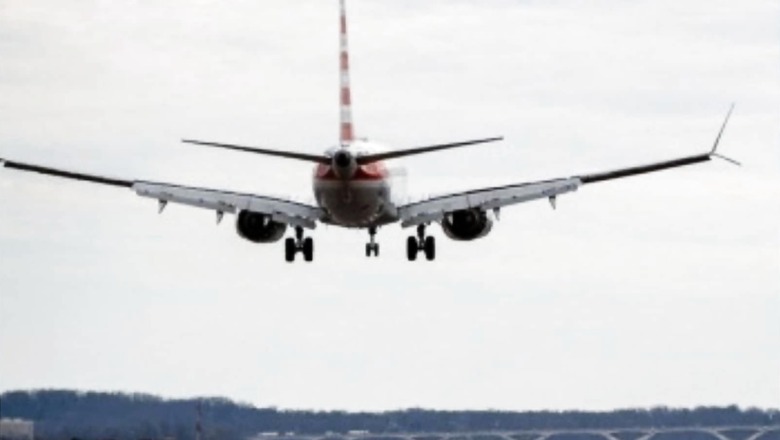
views
The Covid-19-induced suspension of scheduled international passenger flights has been extended till August 30, Indian aviation regulator Directorate General of Civil Aviation (DGCA) tweeted on Friday. Scheduled international passenger services have been suspended in India since March 23, 2020, due to the COVID-19 pandemic. But special international flights have been operating under the Vande Bharat Mission since May and under bilateral “air bubble" arrangements with selected countries since July.
India has formed air bubble pacts with 27 countries, including the US, the UK, the UAE, Kenya, Bhutan and France. Under an air bubble pact between two countries, special international flights can be operated by their airlines between their territories.
At a recently held press conference, IATA’s Director General Willie Walsh has asked the Indian government to relook at their decision to ban scheduled international flights and said things have improved. Addressing the media, Walsh said that the decision was applicable to last year when situation was worse but with all the regulations in place and safety being paramount consideration for airlines, centre should allow scheduled international flights.
He also said that the Vande Bharat Flights and Air Bubble pacts were primarily for bringing back stranded Indians and that’s no more the case. Also, regulations on capacity utilisation as well as fare caps on domestic aviation sector is slowing down the industry’s recovery, he noted.
Notably, the centre’s regulations have been justified to protect the domestic aviation sector from economic turmoil unleashed by Covid-19. However, IATA’s Director General Willie Walsh said that the regulations are distorting the market rather than supporting growth of the market.
According to Walsh, India’s aviation market will recover much faster, if these regulations are removed. Previous data points showed that India’s domestic air passenger volume — measured in revenue passenger kilometres (RPKs) — growth plunged by 42 per cent in April when compared to the levels in the like period of 2019.
The country’s domestic available passenger capacity — measured in available seat kilometres (ASKs) — was down by over 15 per cent. Besides, IATA predicted that India’s aviation market will recover to the 2019 levels by 2024.
Furthermore, he called for easing of international travel restrictions on fully vaccinated passengers. IATA has proposed a comprehensive system should be set in place that allows hassle free travel for those inoculated.
Moreover, the system should also ensure testing and verification of those passengers who have not been inoculated but without increasing the already set restrictions.
A few weeks ago, the Ministry of Civil Aviation allowed domestic air carriers to operate 65 percent of its pre-covid schedule. The capping has been increased from 50 percent capacity on which airlines were operating since June 1 in accordance to May 28, after the surge in cases during second wave of COVID-19. Before June 1, airlines in India were operating at 80 percent capacity.
Also Watch:
India banned all domestic and international flights from operating last March as the first cases of COVID-19 reached Indian shores. While International flights are still banned, domestic operations were allowed last May in a calibrated manner.
Starting with 33 percent, airlines reached 80 percent in December last year, and has been operating on the same cap since then, only to be be capped again at 50 percent and now, increased again to 65 percent of pre-covid summer schedule. The May 28 decision to bring down the cap from 80 to 50 per cent was taken “in view of the sudden surge in the number of active COVID-19 cases across the country, decrease in passenger traffic and the passenger load (occupancy rate) factor", the ministry had said.
Read all the Latest News, Breaking News and Coronavirus News here.




















Comments
0 comment